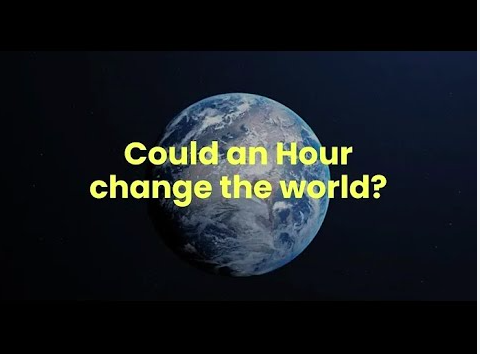
Screengrab from WWF Earth Hour video (Inquirer.net)
CEBU CITY, Philippines — For four straight years, Metro Cebu saw a decrease in the number of participants joining the Earth Hour.
Based on data from Visayan Electric Company (Veco), they only recorded a load drop of 0.573 megawatts (MW) during the observation of Earth Hour last Saturday, March 25, between 8:30 p.m. to 9:30 p.m.
This was 0.119 MW lower compared to last year’s Earth Hour in which the decrease in electricity usage amounted to 0.692 MW.
READ: Filipinos urged to join in Earth Hour 2023
Since 2020, Earth Hour participants or support for Earth Hour in Metro Cebu has been declining.
From 3.6 MW in 2019, the load drop in 2020 for Earth Hour drastically decreased to 0.97 MW. It further declined in the succeeding years.
READ: Cebu power demand drops by 3.6 MW on Earth Hour 2019
Organized by the World Wildlife Fund (WWF), Earth Hour is a global lights-off movement to spread awareness about the environment.
The event serves as a ‘symbolic action’, according to WWF, and not as an ‘energy or carbon reduction exercise.’
“Earth Hour is an initiative to encourage individuals, businesses and governments around the world to take accountability for their ecological footprint and engage in dialogue and resource exchange that provides real solutions to our environmental challenges,” WWF said.
“Participation in Earth Hour symbolizes a commitment to change beyond the hour,” they added.
RELATED STORY
93% of Filipinos felt impact of climate change; optimism still prevails – SWS
/dbs